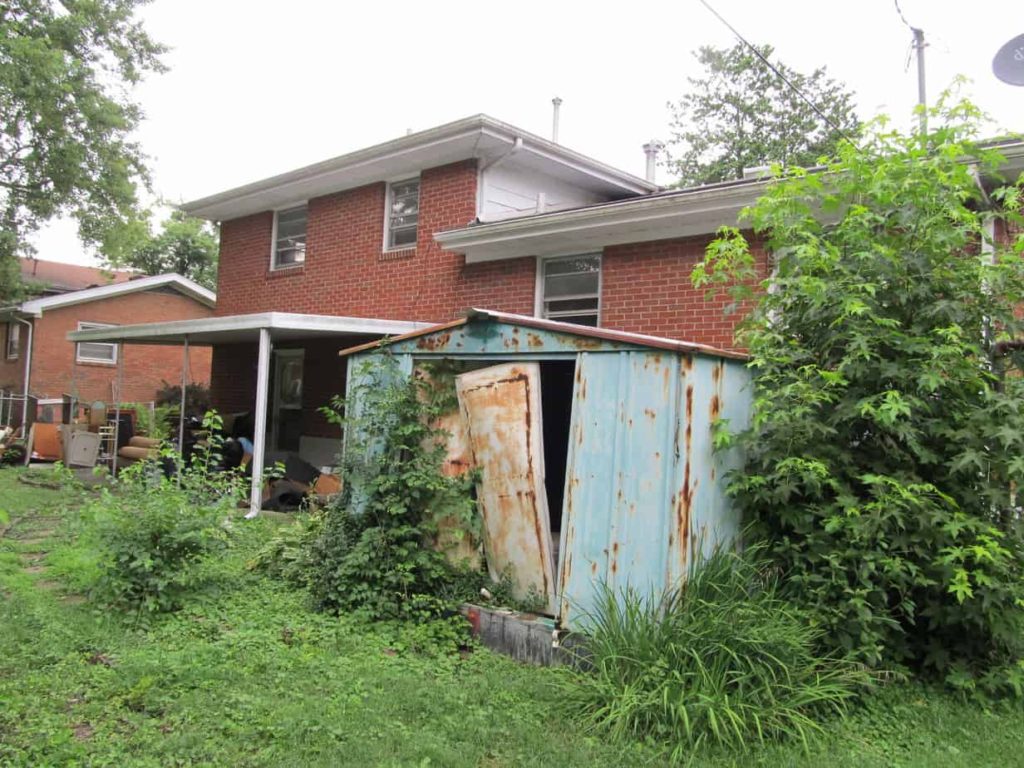
Whether you are buying or selling a home the home inspection is a major hurdle to clear. A house inspection can be exhausting for both parties and the real estate agents. For almost every home inspection there is probably some kind of problem. Most of the time these issues are minor and fairly simple to negotiate.
Unfortunately, some problems can be deal breakers that make home buyers run away.
As a seller, it is important for you do be cognizant of the items that are likely to give buyers pause in moving forward with a purchase. If you can discover and take care of these issues before a buyer has a home inspection that is a major plus.
Preparation for a buyer’s home inspection is of the utmost importance. It can be the difference between selling a home or putting it back on the market. Lots of smart home sellers will spend the money on a pre-listing home inspection. More often than not it is well worth the money to find out your homes condition ahead of time.
If you have any doubt as to the condition of your property, these are the potential home inspection deal breakers you’ll want to address. If you are buying a home, these are some of the potential problems you’ll want to be on the lookout for.
1. Pests and Bugs
In case a house inspector finds termites, you might need to rethink your purchase. Termites feed on the structure of your house, leaving it feeble and unsteady under certain circumstances. But there are a lot of methods to use to get rid of termites.
Ask a specialist to look at the home and treat it is vital. Truth be told, a yearly termite inspection can decrease the risk of danger and keep you calm.
2. Wrong Wiring
The wiring status of a house ought to never be taken lightly. The inspector checks the house wiring for un-grounded outlets, lack of GFCI protection, over-burden circuit breakers, double tapping and general work of poor quality.
Home inspectors will also look for dated types of electrical components such as knob and tube and aluminum wiring, neither of which is used in modern day construction.
Aluminum wiring was mostly used during the 1960s or 1970s and it is usually one of the deal breakers. Aluminum wiring can prompt poor or defective connections, which can lead to recurring flickering or incessant turning off of light, hot switch plates and sockets, burning smell, or power failure taken without triggering a circuit breaker.
House wiring can cost between $ 6,000 and $15,000, relying on the size of the house and the simplicity with which an electrician can get to and supplant the old wiring.
3. Problems with the Roof
A typical issue is a roof leak brought about by damaged shingles. Fixing shingles or flashing can be a simple and cheap repair. However, if the issue persists very long, it implies a lot of work and cash to spend. Any kind of water penetration into the home has the potential to cause mold.
If the roof is past it’s useful life that is another story. Roofs can be fairly expensive to replace, especially if the home is larger. The roof may or may not be a solid investment depending on how long you expect to be in the house.
If your going to be selling within the next year or two, you may not get your money back.
4. Foundation Problems
Your foundation is the stronghold of the house. As with a lot of things in life, in case the foundation is not solid, then what is above can suddenly collapse. If you discover major foundation problems with the house, which would be a great endeavor to fix, this will presumably be a deal-breaker.
Most home buyers do not want to take on major structural issues with a property. Foundation cracks can be quite common. Checking to make sure they do not extend past a certain size is important. Some cracks are part of normal settling others are not. It is important to distinguish between the two.
5. Lead Paint
If the home you are buying or selling was built before 1978, you need to be aware the potential for lead paint exists. Buyers and sellers must follow the lead paint law. It is vital for each party to understand their obligations under the law.
Every real estate agent needs to be well versed in understanding the federal lead paint law – it is mandatory.
6. Bad Pipes
Low water pressure is an indication that the flow of water is narrow. This mostly happens because of fragmented internal plumbing or low water volume from the streets. Stains found below sinks and roofs indicate leaks that require fixing.
Inspect around the toilet, dishwasher, and ice maker if the floor isn’t soft because of breaks. Finally, ask your inspector to check if the house isn’t equipped with polybutylene (PB) pipes (utilized in the years the 70s or 80s). This kind of pipe can leak all of a sudden and cause huge damage. Fixing or replacing water pipes can cost between $ 5,000 and $ 50,000.
7. Faulty Well
When you are buying or selling a home there aren’t many more important things than having a good water supply. Buyers need to be aware of two things when it comes to checking a well. You want both the water quality and quantity to pass local and EPA standards.
It is imperative to check both when buying a home. Lots of home buyers don’t check the well because they have lived with city water and don’t know any better. An excellent real estate agent should point out the necessity to check on the water supply.
8. Radon
It has been reported that there are about 20,000 deaths which occur every year from radon, which is a drab, chemically nonreactive inert gas. The most widely recognized courses of exposure in people are through inhalation and ingestion.
High radon levels have been found in all states. High levels of radon, however are very sporadic. One home might test high and the next door neighbor not so much. Getting your house inspected for radon is the best way to see whether you will pass the suggested EPA limit. This is crucial as the symptoms of radon exposure take a very long time to emerge.
Request a professional to review before signing off on your new house.
9. Flood Areas
The flood areas have turned out to be progressively critical! You don’t need to purchase a house close to a beach or lake to be in a flood zone. Flooding not only leads to problems in your house, but it can also as well cause problems inside your house too. You should also consider the increasing trouble of selling your house in the near future.
When buying a home it is always important to ask if the home is in a flood plain. If it is expect to pay flood insurance which can be very costly.
10. Mold
This is one of the things a homeowner never wishes not to find in a house. Black mold is harmful and negatively impacts the health of all people staying in the house. It develops in areas that are flooded or have had significant exposure to water.
It also has an awful smell. It may be found in wet plasterboard, basement walls, and floors. The detection of dark mold needs the evacuation of every affected material and fixing the source of the problem.
11. Septic System
One of the most costly areas of a home is the replacement of a septic system. More than likely a seller will be required to have their septic system pass inspection in order for a buyer to get a loan on the property.
Replacing a septic system can run anywhere from ten thousand up to $50,000 or more depending on soils and water table. The septic system is the last place you’ll want to find a problem. It is almost always a home inspection deal breaker because of the time involved in getting it corrected.
Final Thoughts
When buying a home it is always advisable to completely understand the home inspection process. If the inspection of your house has structural or mechanical problems, it is advisable to get them fixed. Passing off these issues to a buyer moving forward is going to be challenging to say the least. Most buyers have minimum expectations on what they are willing to accept.
For buyers it can be heartbreaking to lose a house that you have already pictured yourself living in. Nonetheless, if after a home inspection you discover significant fixes that you can’t deal with, the seller won’t acknowledge the same – You may need to simply pull back the home search and reopen it.
Real Estate agents call these things deal breakers for a reason. Lots of people don’t want to deal with such problems when buying a house.
Note: This article was originally posted in the ASHI (American Society of Home Inspectors) website found here and reposted here for your convenience. Written by Bill Gassett and posted on 12/15/2020.


